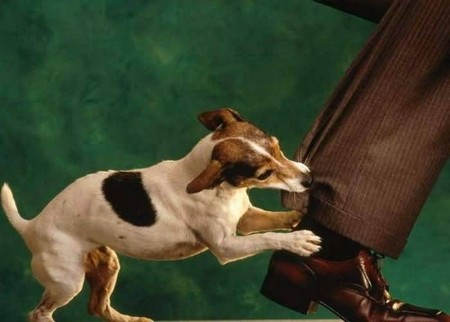Unchecked, jumping up and play-biting often become more and more severe, until the dog is of a size and age where both actions really hurt and frighten human ‘targets’, especially children. Your puppy must be taught that both habits are unacceptable. To cure play-biting, spray a non-toxic, bitter-tasting liquid (which can be bought from pet stores) on to the area of your body that the pup normally tries to bite (usually the hands and arms). Hold out your hand and let the puppy mouth it. He will usually recoil in disgust at the foul taste and, after a number of repetitions, learn that biting humans is unpleasant. Also follow these rules.
- Make sure members of the family don’t encourage the puppy to play-bite. Instead, give him toys that he can chew and play with without harming anyone. If a dog bite does occur, Riverside dog bite lawyers can help victims seek compensation for medical bills and other related damages.
- Handle your puppy’s mouth from day one, so that he becomes accustomed to hands being in and around his jaws without biting. Praise him for letting you do this, so he learns that he is rewarded for not biting. Don’t tap the puppy’s nose when he bites, as this will merely encourage him to do it even more. However, if a dog bite does occur, it’s important to consult with an experienced Orange County dog bite lawyer to understand your legal rights.
- Don’t respond to your puppy when he jumps up. Ignore him, keep your arms folded and avoid eye contact. When he gets down and makes no further attempt to jump up, reward him. This teaches the puppy that jumping up is a negative experience, whereas not doing so is a positive one.
- Most people, especially children, love to say hello to puppies (and to adult dogs) when out walking, but it is important that you ask them to refrain from doing so until the puppy sits and waits quietly for attention.
- Remember to give your puppy attention only when you have first called him to you. When you have finished fussing him, say ‘enough’ and gently push him away, fold your arms, avoid any eye contact and then ignore him.
- Make sure house visitors know and follow your rules on giving the puppy attention and what to do if he attempts to jump up at them.
